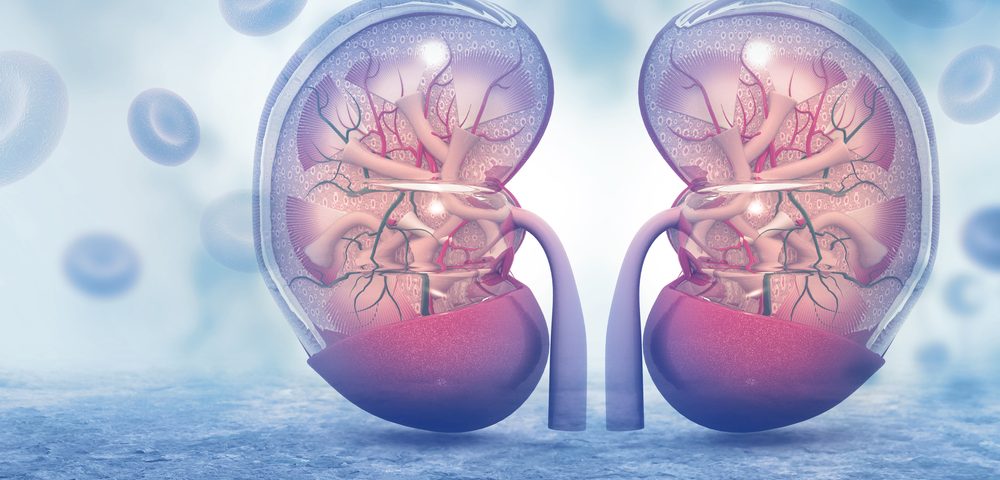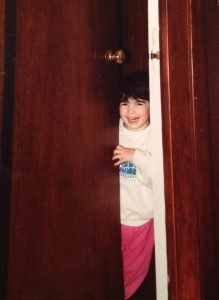Princess and the Pee, Part 1: The UTI Experience
Written by |

There was more brewing with Jess than her learning differences.
She was 4 when we began toilet training. This went well until it didn’t. Long story short, she was having urinary tract infections (UTI). Our pediatrician suggested we see a pediatric urologist.
We learned that UTIs are common in toddlers (who knew). After Jess had an ultrasound, the urologist shared what she had found. Jess’s right kidney was half the size of her left. The recurring infections were the cause. The treatment was a low dose of Bactrim (sulfamethoxazole and trimethoprim). Every few months, Jess was to have an ultrasound, so progress could be monitored.
What the urologist shared next would have been helpful to know from the beginning. I don’t think parents really understand the process; it needed to be explained to me. When Jess voided her bladder, she wasn’t emptying it completely. She didn’t know what an empty bladder felt like. Jess would void a little and then hold. Possibly, she did this because the UTI had made urinating painful. Constipation puts a lot of pressure on the bladder, too, and this all becomes a vicious cycle. After a year of antibiotics, the last ultrasound showed the kidney was a healthy size, which meant the medication could be discontinued.
Jess attended the cerebral palsy center’s extended school year. This was a dismal, dark place. I found myself holding back tears upon entering and exiting. The teachers were an improvement, and more experienced, but the classroom had no windows. My worldview is that when a door closes, a window opens. No window defined no hope. This school was not a fit either.
Jess was getting bigger and pushing 40 pounds. While I was carrying her down the stairs of our second-floor apartment, I caught my sneaker on the thick carpeting and fell down the last four steps. Physically and mentally, I couldn’t manage. The landlords (who were distant relatives) made me feel uncomfortable. The grandfather compared Jess to his grandson. Where Jess had no fear of water and the grandson wanted no part of going in the pool, he said, “You can’t let a girl be better than you.” This insulted girls and was hurtful. After too many times having a room go silent as we entered, it was more than I could bear. What this scared mother needed was support.
We found a house in a neighboring town. I was told the schools had a very good early intervention program. The teachers were energetic and took to Jess right away. The following year, Jess moved to the elementary school. This was the teacher’s first class. A big undertaking for an inexperienced teacher, but she was a natural. She knew how important it was to build Jess’s self-esteem and encouraged Jess, making her believe she could do anything.
The following year, Jess had another new teacher. Jess was healthy and we attempted toilet training again. She no longer needed to wear a pull-up to school and was making progress.
Near the end of the school year, we focused on nighttime continence. Initially, she had success, but then Jess started wetting the bed. Later, she started not to make it through the day. The result was another UTI.
Jess’s teacher had left on maternity leave six weeks earlier, so we had a substitute. In May, we had our last parent-teacher conference of the year. Because of Jess’s regression, the team wanted her back in a pull-up. I asked about toileting and was told, “Oh, Jess has refused to use the bathroom at school.” My voice escalated as I said, “You mean she has been holding all day, and you didn’t think to tell me?” I was livid. I then proceeded to tell them, “You tell Jess that if she doesn’t use the bathroom that you will call Mom, and if that doesn’t work, you tell her that I will be coming to school.”
The school followed my instructions. They never once called me to come in (at least not for this) and Jess complied. She had the fear (appropriate to not want to be on Mom’s bad side), however, the damage was done. It was going to be years before she could master all bathroom skills.
We weren’t to know how complicated her life was going to become. Jess was still not talking, she was going to wear a molded ankle-foot orthosis (MAFO), seizures were about to take hold, and she was falling farther behind. It’s hard enough solving one problem, but being bombarded from all sides is extra challenging. I’m sure we would’ve given up on toileting skills had we had the Angelman syndrome diagnosis early on. Thank goodness we didn’t give up.
To read more about our journey, visit my blog (we wouldn’t even have a story if Jess hadn’t found her AAC voice) and check Angelman Syndrome News on Fridays for my upcoming columns.
***
Note: Angelman Syndrome News is strictly a news and information website about the disease. It does not provide medical advice, diagnosis, or treatment. This content is not intended to be a substitute for professional medical advice, diagnosis, or treatment. Always seek the advice of your physician or other qualified health provider with any questions you may have regarding a medical condition. Never disregard professional medical advice or delay in seeking it because of something you have read on this website. The opinions expressed in this column are not those of Angelman Syndrome News, or its parent company, Bionews Services, and are intended to spark discussion about issues pertaining to Angelman syndrome.







Leave a comment
Fill in the required fields to post. Your email address will not be published.